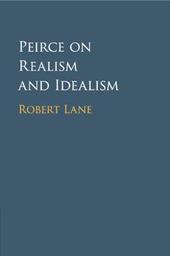
|
Peirce on Realism and Idealism
Paperback / softback
Main Details
| Title |
Peirce on Realism and Idealism
|
| Authors and Contributors |
By (author) Robert Lane
|
| Physical Properties |
| Format:Paperback / softback | | Pages:216 | | Dimensions(mm): Height 152,Width 230 |
|
| Category/Genre | Western philosophy - c 1600 to c 1900 |
|---|
| ISBN/Barcode |
9781108400961
|
| Classifications | Dewey:191 |
|---|
| Audience | | Professional & Vocational | |
|---|
| Illustrations |
Worked examples or Exercises
|
|
Publishing Details |
| Publisher |
Cambridge University Press
|
| Imprint |
Cambridge University Press
|
| Publication Date |
12 December 2019 |
| Publication Country |
United Kingdom
|
Description
This book offers a new interpretation of the metaphysics of Charles Peirce (1839-1914), the founder of pragmatism and one of America's greatest philosophers. Robert Lane begins by examining Peirce's basic realism, his belief in a world that is independent of how anyone believes it to be. Lane argues that this realism is the basis for Peirce's account of truth, according to which a true belief is one that would be settled by investigation and that also represents the real world. He then explores Peirce's application of his Pragmatic Maxim to clarify the idea of reality, his two forms of idealism, and his realism about generality and vagueness. This rich study will provide readers with a clear understanding of Peirce's thoughts on reality and truth and how they intersect, and of his views on the relation between the mind and the external world.
Author Biography
Robert Lane is Professor of Philosophy at the University of West Georgia. He is editor of Peirce submissions for the Transactions of the Charles S. Peirce Society and has published numerous essays on Peirce.
Reviews'With impressive clarity and careful attention to the manuscripts, Robert Lane shows us how Peirce could consistently endorse both realism and idealism throughout his life. This book elucidates key conceptions and important distinctions at the heart of Peirce's metaphysics. It is essential reading for anyone trying to reconcile the comprehensibility of reality, on the one hand, with its mind-independence, on the other.' Richard Kenneth Atkins, Boston College
|